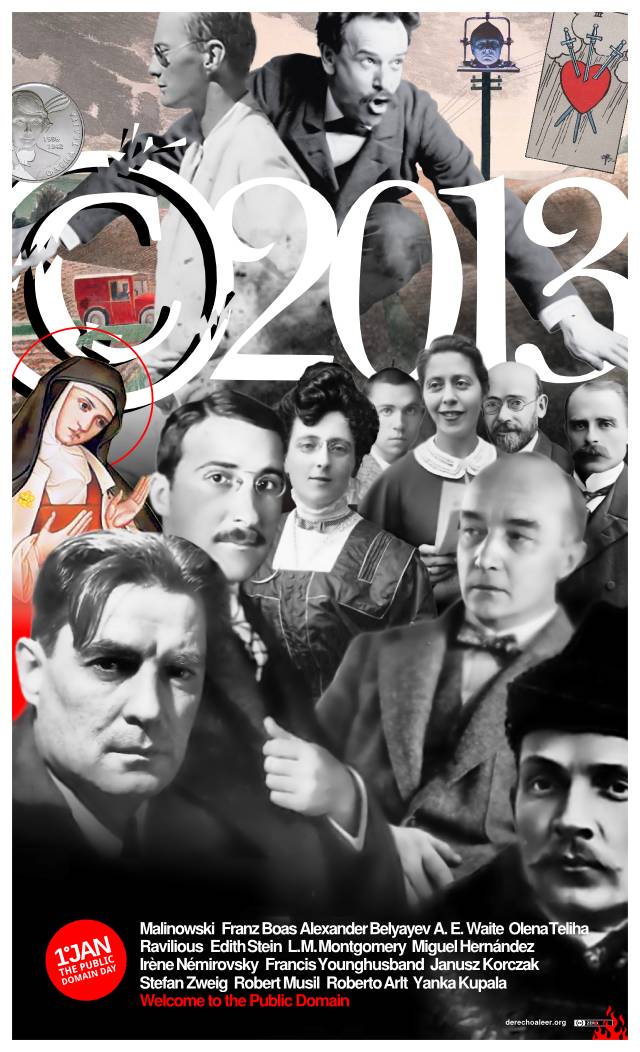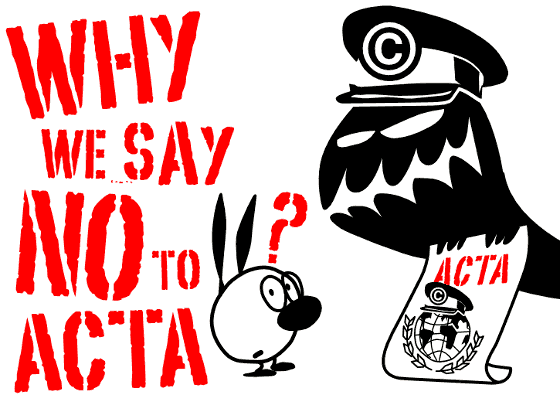The unforgettable story of the seizure to the defaulter Mario Costeja González that happened in 1998
Spanish to English translation: @misojosxelmundo.
![[img]](/media/img/2014/olvido/google-en.jpg)
On January 19th, 1998, the newspaper La Vanguardia published (in its 23rd page) a regular auction listing from the Labour Ministry with all the property seized by the Social Security Department, where there were almost twenty properties with their corresponding location, description and owner. Among them, a 90 m2 jointly owned property in San Feliú de Llobregat, Catalonia, Spain, whose owners were Mario Costeja González and wife.
Continue ReadingTell Mozilla: Keep DRM out of Firefox
Only a week after the International Day Against DRM, Mozilla has announced that it will support Digital Restrictions Management in its Firefox Browser. The browser will have a built-in utility that automatically fetches and installs DRM from Adobe.
We hope that these banners listed below contribute to raising awareness about this unfortunate decision!
![[mozilla drm out ifo]](/media/img/2014/firefox/mozilla-drm-out-info.png)
«Happy» World IP Day 2014!
“Movies, a global passion” is the slogan of the global event sponsored by the World Intellectual Property Organization (WIPO) called “World IP Day” (#worldIPDay on twitter). The celebration is hold annually every April 26. It seems that if you’re passionate about movies, you should become a sort of defender of “intellectual property”. However, we believe that the defenders of “intellectual property” —particularly the most extreme ones— are nourished by certain and often unspeakable passions. In order to promote (a real) “discussion of the role of intellectual property (IP) in encouraging innovation and creativity” we celebrate by posting some cartoons, that are a remix of the characters created (and free released) by Nina Paley. Enjoy!
IP terrorism
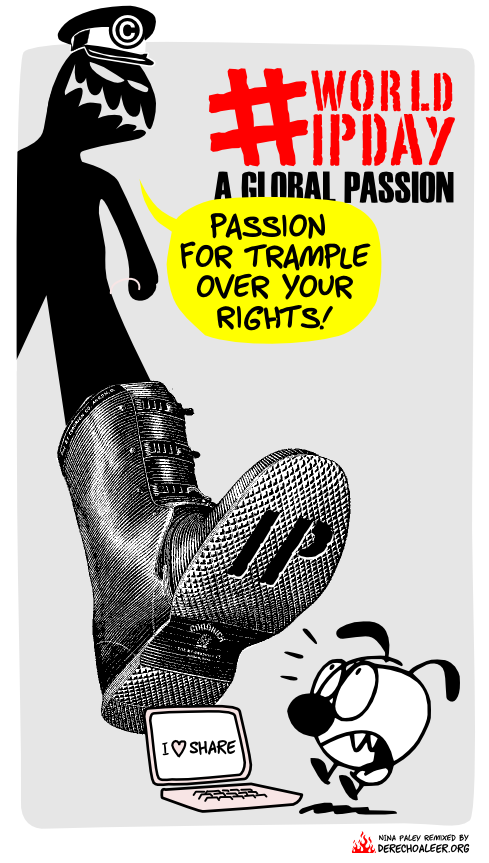
Lead bullets for artists in Buenos Aires
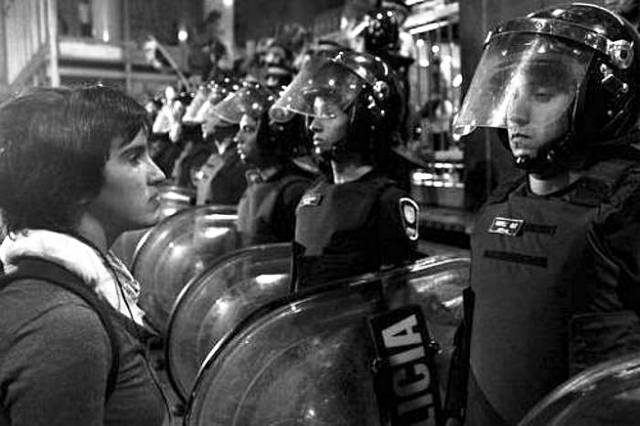
The General San Martín Cutural Centre, (CCGSM) which depends on the government of the City of Buenos Aires, is the largest public cultural center of Argentina and one of the most prestigious in Latin America. Its audiences had reached around 300,000 spectators annually, and even hosted for some time the CONADEP (National Commission on the Disappearance of Persons) and the city’s legislature body. However, since January this year, the building has been militarized by the city government, with numerous metropolitan police officers and unidentified security personnel circulating its facilities and with all the activities suspended. This is how those in charge of “culture” in the city of Buenos Aires chose to solve a long-standing conflict, featuring artists and students who resist the closure of a space housed within the CCGSM: The historical Alberdi Hall.
At nigth on Wednesday, an operation by the Metropolitan Police seriously escalated the level of violence of the conflict trying to evict forcefully the protesters who were carrying out a cultural camp at the square adjacent to the complex, causing at least three gunshot wounds: I was hit by a lead bullet that perforated my thigh, by a Metropolitan police officer who shot me at the intersection of Corrientes Avenue and Paraná Street,
said a journalist of the Alternative Media Network, then transferred to the Durand Hospital, whose name, along with that of a photographer of the same organization, are on the list of at least three people wounded by bullets that were registered on that day.
Welcome to the Public Domain: Roberto Arlt

I was born on 26th April, 1900. I have attended to primary school until I was 8. They expelled me because I was a good for nothing. I was a student at the Army Mechanic School. They expelled me because I was a good for nothing. Since I was 15 and until my 20s, I did every kind of trade.They always fired me. I wrote El juguete rabioso (The angry toy), a novel, when I was 22.For four years, it was rejected by every editor. After that, I found an inexperienced one.
The violent servilism and the inexorable cruelty of men will never be beaten. I think we have the horrible mission / task of attending the twilight of mercy and we do not have any chance but to write torn apart to avoid throwing bombs or setting up brothels. People would show more gratitude for this last one. Man, in general, provokes me repugnance, and I have –as the only virtue- not to believe in my possible literary value for more than five minutes a day. Among women, the ones whom I am interested in are the dishonest ones, the virgins; and among the despicable union, the honest men.Roberto Arlt, from “Cuentistas de Hoy”, 1926
The 70 insane
Last 26th July, it has been 70 years since Roberto Emilio Godofredo Arlt died and since this last January 1st, 2013, and because of our courteous and distinguished (argentinian) Law 11723 of “Intellectual Property”, his work has entered Public Domain.
It is very common to hear that internet is the impunity paradise, where the infinite and “the absence of regulations” make the net user immerse in a savage licentiousness without any rule, and with the only choices of repression and surveillance. And it is really far from reality. Unlike real world, you can spend many years in jail for opening letter you don´t have to or pay a lot of money for not erasing a comment in time. Or worse: go to jail for opening a library. In fact, and opposed to what happens in the limited material world, in the uncontrolled internet world, the only libraries that are allowed are the ones of Public Domain. In the real world, you can create a library and make a long list of best-sellers of the year for everyone and you may probably be awarded distinguished citizen. But if you try to do the same on the internet, you will get the police over you, public prosecutor Sáenz, the FBI and even anti terrorist elite commandos.
Continue ReadingWelcome to the Public Domain: Boas and Malinowski
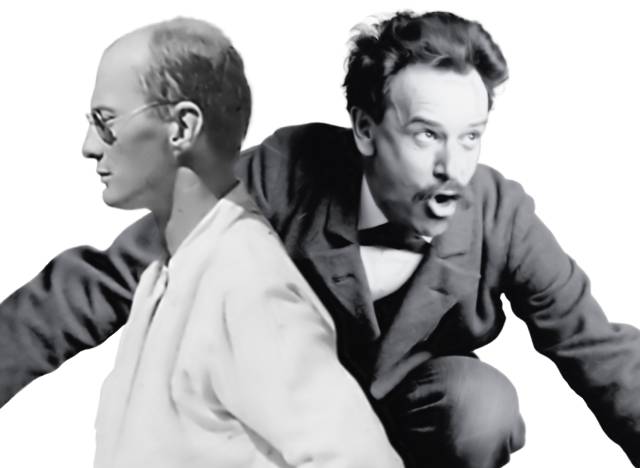
We want to know whether you have come to stop our dances and feasts, as the missionaries and agents who live among our neio-hbors try to do. We do not want to have anybody here who will interfere with our customs. The agent has told us that he would send a man- of-war if we should continue to do as our grandfathers and great- grandfathers have done. […] We will dance when our laws command us to dance, we will feast when our hearts desire to feast. Do we ask the white man, ‘ Do as the Indian does ‘ ? No, we do not. Why, then, will you ask us, ‘ Do as the white man does ‘ ? It is a strict law that bids us to dance. It is a strict law that bids us to distribute our property among our friends and neighbors. It is a good law. Let the white man observe his law ; we shall observe ours. And now, if you are come to forbid us to dance, begone ; if not, you will be welcome to us.
This was the way Franz Boas transcribed the saying of the O’wax̱a̱laga̱lis leader from the Kwagu’ł tribe in an article published by Popular Science in 1888. It refers to a native festival known as Potlatch that Boas has documented. The celebration has a ritual purpose but also an economic one: it is a way of redistributing goods from the prosperous groups to the ones that were less lucky that season. One way of exchange regulated by very different values to the market economy that is well known by the white man. What gives someone prestige and social recognition in the Potlatch is the capacity of giving goods to the others and no the cleverness of accumulating and taking the biggest part. Canadian and American governments have considered that it was all about a completely and worthless custom, a waste an unproductive ceremony and “opposed to the civilized values”. And they have made the effort to forbid such an economic heresy for a while.
The Kula, known as the kula exchange as well, is a ceremonial exchange done by eighteen island communities from the Massin Archipelago in the Occidental Pacific and it involves millions of people. Basically, they exchange two symbolic goods: bracelets and necklaces made of shells (Soulava and Mwalli). I.E., if you receive a bracelet you must five a necklace, but the value of the objects is not fixed, it is a gift and each one decides how to give the favor back. There is no place for bargaining. As in the Polatch, it is about giving and gaining prestige and reputation and keeping peace with the neighbours. The kula was the main subject of study of an ethnographic work published in 1922 —that is a classic now beyond the anthropology field— and gave his author universal popularity. “Argonauts of the Western Pacific”, written by Bronislaw Malinowski. The book was the result of a long stay with the natives of the Trobriand´s islands.
This kind of work on pioneer´s field about rituals such as the Potlatch and the Kula were the triggers of the The Gift from Marcel Mauss in 1925 which led to a series of investigations about “the gift economy” (that goes until Eric S. Raymond in the 90s). It studies how exchange and social prestige systems based on the gift, solidarity and reciprocity work. When certain social dynamics related to the use of IT are analysed, such as the collaborative communities of free software, the P2P nets exchange or the DIY communities, there is an unexpected common thread that connects the rituals, customs and values of the online tribes of the new millennium, and the archaic groups of hunters-collectors studied by Boas and Malinowski by the beginning of the century. Our symbolic Soulava and Mwalli could be “Attribution”, “Copyleft” or “GPL” and our economic goods to give are code and knowledge. It has been more than a century since the obsolete evolutionist groups have stated that `cultural evolution´ was normally a native of savagery, underdeveloped stated and civilization, but it seems that with the internet –and probably for Boas´ happiness- we are returning to the civilized practices and values of savagery: the winner is the one who gives more.
Continue ReadingPublic Domain Day 2013
Happy Public Domain Day 2013!
We could say that the Second World War has been one of the most disinterested and effective benefactors in the list of authorial inclusions to the universal domain for this year 2013. The work of the authors that died in 1942 has joined in public domain on January 1st. 1942 was a prolific year of slaughters and brutality with more than ten million slaughtered people (performance superseded only in 1945, by the end of the war). 1942 was a decisive year: powers from the axis were closer to win. They started operating the Nazis extermination camps as well, with a practical, verbose and organized industry of systematic and massive murders. There, Jewish, Gypsies, “State enemies” and, of course, intellectual authors unpleasant or “corrupted” artists for the regime found death before their time and were condemned without finishing their best pieces.
Continue ReadingInfographics: Why we say NO to ACTA?
Continue ReadingPublic Domain Day 2012!
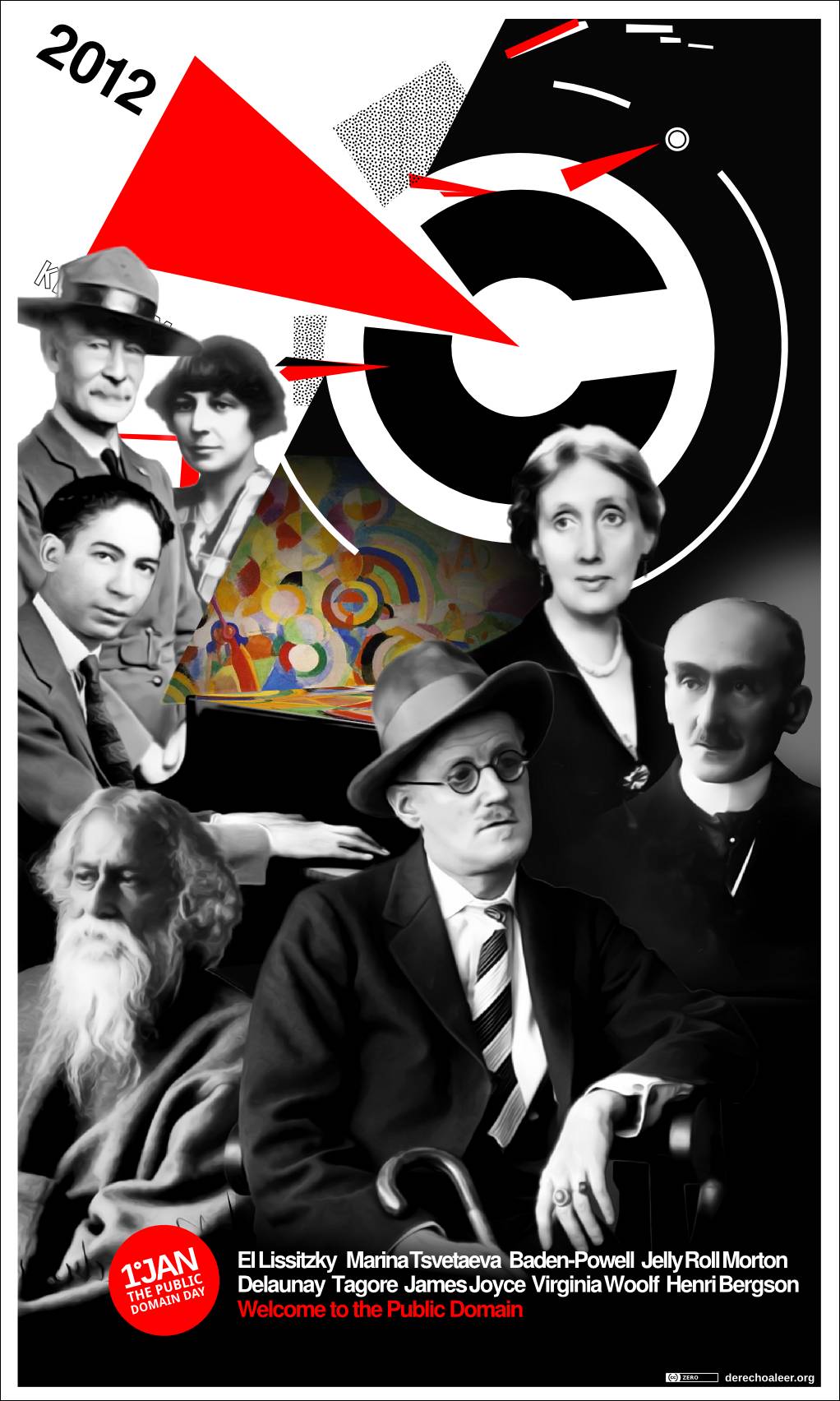
¡Happy Public Domain Day 2012!
1) El Lissitzky 2) Marina Tsvetaeva 3) Lord Robert Stephenson Smith Baden-Powell 4) Jelly Roll Morton 5) Robert Delaunay 6) Sir Rabindranath Tagore 7) James Joyce 8) Virginia Woolf 9) Henri-Louis Bergson
Continue Reading![[#ResetThenet #WithoutGoogle]](/media/img/2014/rtnwg/rtnwg-1.png)
